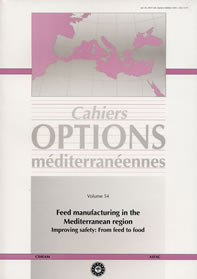| Article précédent | p. 17-21 | Article suivant |
Consequences of probiotics release in the intestine of animals
A probiotic dose of 106 to 107 CFU per g of feed administered continuously is necessary to obtain a balance between probiotic microorganisms and bacteria of the resident microflora in the gut. Different mechanisms of probiotic action have been suggested, but most are only hypothetical. The positive effect can result either from a direct nutritional effect of the probiotic, or a 'health' effect, with probiotics acting as bioregulators of the intestinal microflora and reinforcing the host's natural defences. Probiotics generally show low efficiency under controlled experimental conditions, but under animal husbrandy conditions, the activity of some probiotics seems better when the gut microflora is unbalanced. In 1994, EC directive guidelines for the assessment of additives in animal nutrition were modified to include probiotics and enzymes (EC directive 94-40). Action mechanisms of all probiotics should be fully defined in order to improve their future use.
- [ Afficher ]
- [ Télécharger ]
- [ Exporter la citation ]
Vous pouvez télécharger la citation au format :
- [ Imprimer ]
-
Mots-clés
ALIMENTATION DES ANIMAUX, CROISSANCE, EFFICACITE ALIMENTAIRE, MICROORGANISME, PROBIOTIQUE, SANTE ANIMALECiter cet article
Guillot J.F. Consequences of probiotics release in the intestine of animals. In : Brufau J. (ed.). Feed manufacturing in the Mediterranean region. Improving safety: From feed to food. Zaragoza : CIHEAM, 2001. p. 17-21. (Cahiers Options Méditerranéennes; n. 54). 3. Conference of Feed Manufacturers of the Mediterranean, 2000/03/22-24, Reus (Spain). http://om.ciheam.org/om/pdf/c54/01600006.pdf



